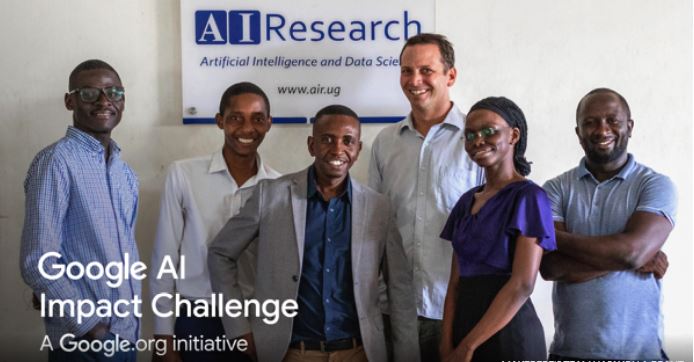
KAMPALA – Uganda’s oldest University, Makerere has Wednesday morning, May 8 been announced one of the 20 projects that will share $25 million grant from Google.org for air quality monitoring coverage and make use of artificial intelligence (AI) to improve forecasting accuracy, raise awareness of air quality issues and inform public policy making in this critical area.
The school’s AirQo project, an air quality monitoring project at the Department of Computer Science, School of Computing & IT in the College of Computing and Information Sciences will pocket $ 1.3M Google grant.
“We are thrilled to be receiving a grant from Google.org to support the AirQo project that aims to contribute to improved air quality in Kampala and other urban towns,” said Engineer Bainomugisha, Project Leader and Chair, Department of Computer Science, Makerere University.
Mr. Bainomugisha added that “With little resources, we have demonstrated that it is possible to build and deploy a robust network of low-cost air quality monitors across Kampala city. The Google grant will make a huge difference to our project and allows us to truly scale up the network up to become an effective resource for all Ugandan citizens and policymakers.”
Ms. Jacqueline Fuller, the Google.org president said that “At Google, we have seen how AI can help us accomplish daily tasks and travels, and we believe in its potential to help address some of the world’s biggest humanitarian challenges. We are excited to support Makerere University’s AirQo project work to use AI to achieve even greater social impact.”
Makerere Vice Chancellor, Prof. Barnabas Nawangwe said the Google.org grant will facilitate handling the air pollution in Uganda due to increased population.
“Our population as a country is rapidly increasing and as such additional pressure is being exerted on our cities. Air pollution is one of the biggest threats in this regard,” said Prof. Nawangwe.
“This timely innovation is no mean achievement in as far as utilizing research and technology to the improve lives of our urban population is concerned,” he emphasised.
The College Principal, Prof Tonny Oyana said Dr. Bainomugisha has “successfully developed, tested and validated a robust, low-cost air monitoring device and algorithm,” adding, “With this new funding support, he is going to scaleup air quality monitoring coverage and apply AI to monitor, analyze, raise awareness and develop solutions to air quality issues in Uganda.”
The AirQo project aims to contribute to the improvement of urban ambient air quality by providing low-cost technologies including application of AI to quantify and inform policy to help reduce, contain and better manage air pollution and its associated health risks.
The Google AI Impact Challenge is an open call to nonprofits, social enterprises, and research institutions from around the world to submit their ideas to use AI to help address societal challenges. Over 2,600 organizations applied.
The AirQo project will receive a $1.3 million USD grant to scale up their existing air quality monitoring coverage and to make use of artificial intelligence (AI) to improve forecasting accuracy, raise awareness of air quality issues and inform public policy making in this critical area.
Next week, representatives from the Makerere AirQo project will travel to San Francisco to dive into execution.
For five days, all 20 organizations will join Google AI experts, Project Managers and the startup specialists from Google’s Launchpad Accelerator for a program that will last six months, from May to November 2019.
Through the Launchpad program, each of the 20 grantees will develop their own OKRs— Objectives and Key Results and set timelines for project completion. Each organization will be paired with a Google expert who will meet with them regularly for coaching sessions, they will also have access to other Google resources and expert mentorship.
Since 2005, Google.org has worked to extend the reach of nonprofit innovators and connect them with a unique blend of support that includes funding, tools, and volunteers from around Google. These innovators are the believers-turned-doers who have made the biggest impact on the communities they represent, and whose work has the potential to produce meaningful change that can scale. Though each nonprofit’s project poses a fresh challenge, Google asks the same question every time: “How can we bring the best of Google to power their work and accelerate their progress?”





